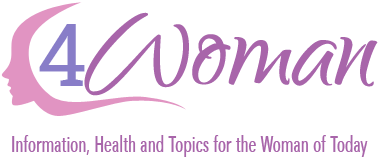TB
TB (tuberculosis [too-burr-cue-low-sis]) is a disease caused by bacteria (bak-teer-ee-uh) or germs. It can hurt any part of your body. But it normally hurts your lungs. TB is spread in the air. If someone with TB in their lungs or throat coughs or sneezes, people nearby who breathe in the germs may get TB.
There are 2 types of TB:
- Latent TB infection: you have the TB germs, but it doesn't make you sick. People with TB infection
- have no symptoms
- don't feel sick
- can't spread TB to others
If you have the TB germs, you could get sick with TB disease. Some health problems make your body weak, and you may not be able to fight the TB germs. If this happens, you'll get sick with TB disease.
- TB disease: You have the TB germs and they are growing. If this happens in your lungs, you can have these symptoms:
- Bad cough that lasts more than 2 weeks
- Coughing up blood or phlegm (flem)
- Chest pain
- Feeling weak
- Losing weight
- Not wanting to eat
- Chills
- Fever
- Sweating at night
If you have TB disease in your lungs or throat, you can give it to other people. You need to stay home from work or school. Visit your doctor. Your doctor will give you tests and then tell you when it's ok to go back. That may be 2 to 3 weeks after you start taking the pills.
Protect your family at home:
- Take your pills. Keep taking them even after you start feeling better. Stop when your doctor tells you to.
- Always cover your mouth with a tissue when you cough, sneeze, or laugh. Put the tissue in a closed paper bag. Throw it away.
- Sleep in a bedroom by yourself.
Latent TB is much more likely to become active TB in someone with HIV. This is because HIV weakens the immune system, which makes it harder for the body to fight off diseases like TB. The drug isoniazid can help prevent latent TB from becoming active TB. People with HIV infection who need to take isoniazid are also given a vitamin called pyridoxine to prevent problems with your nervous system. TB disease can increase your HIV viral load and lower your CD4 cell count. It is especially important for people with HIV to get treatment, because TB disease can be deadly.
Some activities and jobs may increase your chances of spending time with people who have TB and getting TB. These include working in a health care setting (a hospital, a clinic, a doctor's office), in jails and prisons, and in shelters for homeless people. You and your doctor should decide whether you should work in these places and how often you should be tested for TB.
If you can, avoid spending time with someone who has active TB but is not taking medicine or has just started taking medicine. A person who has been taking medicine for a few weeks can normally not spread TB to you. That person's doctor will say when it's safe for other people to spend time with him or her.
If you are exposed to a person with active TB, you should ask your doctor provider about getting treatment, even if your skin test was negative for TB. If your skin test result is positive (but you do not have active TB), you will most likely be given 12 months of treatment with isoniazid to prevent active TB. You need to take your medicine for the full 12 months because TB germs die very slowly. Take your medicine exactly as your doctor tells you. The drugs that fight TB work as well in people with HIV as they do in people who do not have HIV.
Back to HIV/AIDS page
